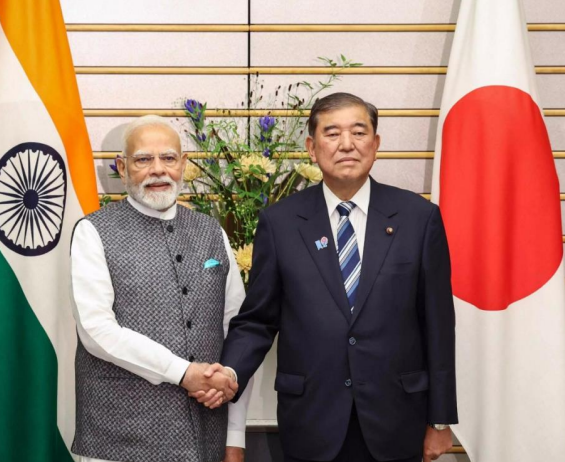Introduction
India and Japan have reinforced their strategic India Japan tech partnership by signing 21 agreements during Prime Minister Narendra Modi’s visit to Tokyo. These agreements focus on artificial intelligence (AI), semiconductors, and cutting-edge technology collaboration, paving the way for deeper cooperation between two of Asia’s leading economies.
Boosting AI Collaboration Between India and Japan
Artificial intelligence is one of the cornerstones of this India Japan tech partnership. Both nations have committed to joint AI research, development, and deployment, with key applications in:
- Healthcare
- Manufacturing
- Smart mobility
- Public services
Japan’s expertise in robotics and automation, combined with India’s software development strength and rapidly growing AI startup ecosystem, makes this India Japan tech partnership well-positioned for breakthroughs. The collaboration will also foster:
- Researcher exchange programs
- Innovation hubs
- Ethical AI development aligned with global standards
Semiconductor Supply Chain Resilience
Another highlight is the semiconductor India Japan tech partnership aimed at reducing supply chain vulnerabilities. With global demand for chips surging, both nations view this as crucial for economic and strategic stability.
- India is establishing itself as a semiconductor manufacturing hub through government-backed initiatives and incentives.
- Japan contributes decades of expertise in materials, chip design, and fabrication technology.
This collaboration opens doors for Japanese investments in India’s chip facilities while enabling Indian companies to access advanced Japanese technologies. It comes at a critical moment when geopolitical tensions have disrupted global supply chains, positioning India and Japan as reliable, Asia-centric alternatives.
Driving Tech Innovation and Startups
Beyond AI and semiconductors, the agreements emphasize technology innovation and startup ecosystems. Key initiatives include:
- Cross-border collaboration between Indian and Japanese startups
- Focus on fintech, clean energy, cybersecurity, and advanced manufacturing
- Establishment of innovation hubs in both nations
- Funding, mentorship, and market access for entrepreneurs
This cross-border collaboration aims to strengthen bilateral ties while boosting global competitiveness.
Strategic and Geopolitical Significance
The timing underscores the strategic dimension of India–Japan cooperation. Both nations are part of the Quad grouping (United States, Australia, India, Japan) and share a commitment to a free, open, and secure Indo-Pacific region.
By deepening ties in technology, they send a strong signal of their commitment to:
- Building trusted technology ecosystems
- Reducing dependence on rival supply chains
- Collaborating with other like-minded countries
Industry Reactions and Future Outlook
Industry leaders from both countries have welcomed the agreements as a milestone for the global technology landscape. Analysts believe:
- The semiconductor partnership could be transformative for India’s manufacturing goals and Japan’s leadership revival in chipmaking.
- AI collaboration may lead to solutions in healthcare, sustainable urban development, and beyond.
Over the coming months, the 21 agreements are expected to translate into concrete projects with strong political and industry support.
Conclusion
Prime Minister Modi’s visit to Tokyo not only strengthened diplomatic ties but also created a comprehensive roadmap for technology collaboration. By focusing on AI, semiconductors, and innovation, India and Japan are positioning themselves as key players in the global tech race.
This partnership underscores the growing importance of technology diplomacy in shaping economies, industries, and international relations, promising enhanced resilience, innovation, and competitiveness in the years ahead.









